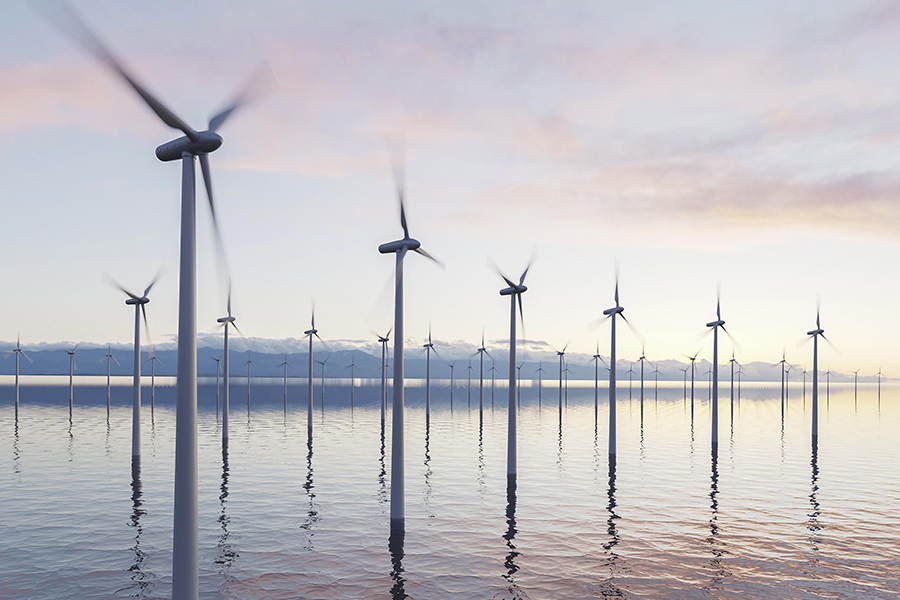“Money talks.”
Environment and Climate Minister Steven Guilbeault spoke those words in Brussels Wednesday, during a meeting aimed at mobilizing private financing for international climate action.
But the observation extends so much farther. Financial self-interest drives every aspect of the institutional response to the climate emergency, its influence so central and decisive that officials rarely name it out loud.
It’s been the obvious, underlying cause of this summer’s killer heat waves and wildfires, after decades of climate denial and delayed action funded by fossil fuel companies that understood the science of climate change in the 1970s, but chose not to let the rest of us in on the secret.
It’s the smoking gun behind the moment that veteran climate writer Bill McKibben chronicles this morning in his Crucial Years newsletter, when firefighters in heat-soaked Phoenix, Arizona found a man sprawled in the street unconscious and covered in burns. His internal body temperature stood at 107°F/41.7°C, and his skin was peeling off. “Basically, his brain was fried,” said first responder Brandon Kanae.
And it’s the back story for the major climate issues du jour in Canada—from Guilbeault’s pledge to end fossil fuel subsidies this week, to the federal cap on oil and gas emissions expected this fall, to a new report from Environmental Defence Canada that shows what it would cost oil and gas companies to clean up the massive environmental mess they’ve left behind in and around the Alberta oil sands.
It was the obvious obstacle in 2021, when rich nations missed their own self-declared deadline to deliver $100 billion per year in climate finance to countries on the front lines of the emergency—and in 2009, when they set that arbitrary target in the first place, apparently without bothering to ask how much developing countries would actually need to extricate themselves from the crisis.
It’s the motivator for months of weasel words and double-talk from the incoming chair of this year’s COP 28 negotiations, fossil fuel CEO Sultan al Jaber, as he scrambles to establishes his net-zero credentials while his company lays plans for massive growthin oil and gas exploration and extraction.
And it will almost certainly be one of the major sticking points at COP 28, after developing country delegations blamed the persistent lack of financing for the erosion of trust between the global North and South.
Each of these snapshots is a news story unto itself. (That’s why we produce a free weekly news digest.) But funding and financing is the common denominator that draws them all together, and all too often, the limiting factor that impedes faster, deeper carbon cuts. Because, as Guilbeault said so much more succinctly:
“Money talks.”
A ‘North Star’ for Climate Talks
In Brussels last week, Guilbeault announced a $450-million federal contribution to the Green Climate Fund, the United Nations’ sporadically-supported primary mechanism for funding climate solutions in developing countries. But his focus was on mobilizing private sector dollars to supplement government-to-government contributions.
“Money talks, so we encourage other contributors, traditional and new, to use this second replenishment of the Green Climate Fund to raise their ambition,” he said. “We clearly know that there’s not enough public money to meet the challenge of fighting climate change or adapting to climate change, which is where the private sector capital mobilization comes into play.”
But money was talking in a different way during the Brussels meeting, as al Jaber laid out his long-awaited plan of action for the COP 28 talks. COP-watching always comes down to the nuances of language, and in this case a key question was whether al Jaber would step back from his recent attempts to address oil and gas emissions without a reduction in oil and gas production. That position earned him a “remarkable rebuke” from 130 elected officials in the United States and the European Union.
The pressure seems to be working, because al Jaber did somewhat better this week. The Guardian reports that he reaffirmed a 1.5°C limit on average global warming as a “single north star” for COP 28 negotiations, called for countries to update their emission reduction plans ahead of the conference, pitched plans to double energy efficiency and triple renewable energy capacity by 2030, and declared a “phase down of fossil fuels” to be “inevitable and essential”.
Al Jaber even committed to address the Scope 3 emissions that account for about 80% of the climate pollution in a barrel of oil. “Let us end the reductive discussion of Scope 1 v Scope 2 v Scope 3,” he declared. “We need to attack all emissions, everywhere: one, two and three.”
A Gross Misrepresentation
But then…money talks. “Phasing down fossil fuels is inevitable and it is essential—it’s going to happen,” he told the Guardian. “What I’m trying to say is you can’t unplug the world from the current energy system before you build the new energy system. It’s a transition: transitions don’t happen overnight, transition takes time.”
As CEO of the Abu Dhabi Oil and Gas Company (ADNOC), al Jaber must surely know that his position is both a statement of fact and a gross misrepresentation of the next steps for emission reductions.
No one is seriously suggesting it’s realistic to “unplug” from the world’s dependence on oil and gas overnight. But it will take a far faster phasedown than al Jaber is banking on to get a runaway, global emergency under control. It’s been more than two years since the International Energy Agency concluded that no new oil and gas fields, coal mines, or mine extensions are consistent with the 1.5°C climate stabilization target that al Jaber says he supports. Yet ADNOC, already the world’s 11th-largest oil and gas producer, is planning the fifth-largest production increase, the Guardian revealed in April.
That’s the kind of behaviour, or misbehaviour, that had Paris climate agreement architect and former UN climate secretary Christiana Figueres giving up her long-held hope that fossil fuel companies can play a useful role at the COP negotiating table.
“I have for years held space for the oil and gas industry to finally wake up and stand up to its critical responsibility in history,” Figueres wrote earlier this month. “But what the industry is doing with its unprecedented profits over the past 12 months has changed my mind.”
Instead of stepping away from new exploration and investing in alternatives, “what we see is international oil companies cutting back, slowing down or, at best, painfully maintaining their decarbonization commitments, paying higher dividends to shareholders, buying back more shares and—in some countries—lobbying governments to reverse clean energy policies while paying lip service to change,” she added. “On top of that, the industry as a whole is making plans to explore new sources of polluting fossil fuels and, in the United States, intimidating stakeholders who have been moving towards environmental, social and governance responsibility.”
These are the companies al Jaber is so determined to put at the centre of negotiations in Dubai five months from now.
A $148B Bill Comes Due
For the latest evidence that money is talking loud and clear in Canadian energy politics, look no farther than a report by the Edmonton-based Parkland Institute, released this past week by Environmental Defence Canada. It calculates the cost of cleaning up the pollution left behind by oil and gas production at $123 billion today, rising to $148 billion if the industry continues its current output through 2029. The total hits $224 billion if oil and gas production is left unchecked through 2040.
Even so, Parkland says Canadian fossils’ outsized profits are more than enough to pick up the tab. A cleanup based on 2029 data would chew up just 37% of the industry’s cumulative profits of $405 billion in that year.
But needless to say, the companies won’t make the investment on their own. “Unless governments force oil and gas companies to put aside profits to cover cleanup, the public will be the ones paying to clean up the industry’s environmental mess,” Environmental Defence warns.
Aliénor Rougeot, the group’s climate and energy program manager, said provincial governments are responsible for enforcing laws that enshrine polluter pay principles. But the federal government “can tie sources of funding to the implementation and enforcement of the collection of cleanup funds,” she told The Energy Mix in an email.
In Alberta, the Mine Financial Securities Program would be the primary mechanism to collect the funds. But “this fund has been criticized by economists and environmental experts for years, mostly due to its lack of transparency and its reliance on the future value of assets as ‘security’,” Rougeot wrote. So the rules would need to be tightened up considerably to get the province’s cleanup costs covered.
But so far, that’s another area where money appears to talk. Rather than working with Ottawa to protect taxpayers from a cleanup bill once estimated at $260 billion, western premiers seized another opportunity over the weekend to criticize Guilbeault’s call for a global phaseout of unabated fossil fuels. Alberta Premier Danielle Smith accused the federal minister of “seeking ways to sow investor uncertainty and reduce support for Canadian [fossil] energy globally”, while her Saskatchewan counterpart, Scott Moe, said Ottawa “doesn’t want to just reduce emissions in our energy sector, they want to completely shut down our energy sector.”
This story originally appeared at Energy Mix Weekender by Mitchell Beer and is republished here as part of Covering Climate Now, a global journalism collaboration strengthening coverage of the climate story. Beer, who traces his background in renewable energy and energy efficiency back to 1977, in climate change to 1997.






